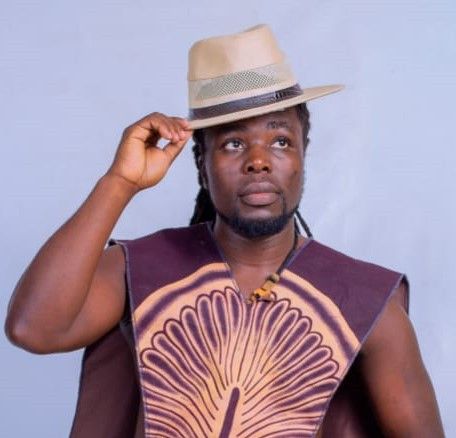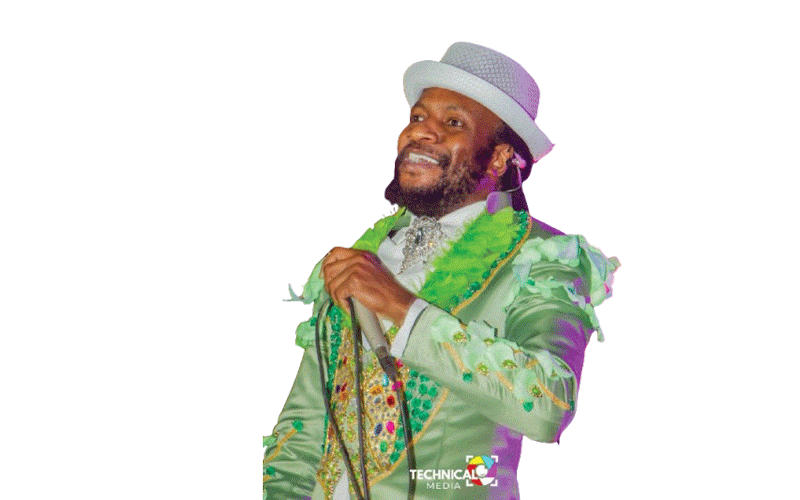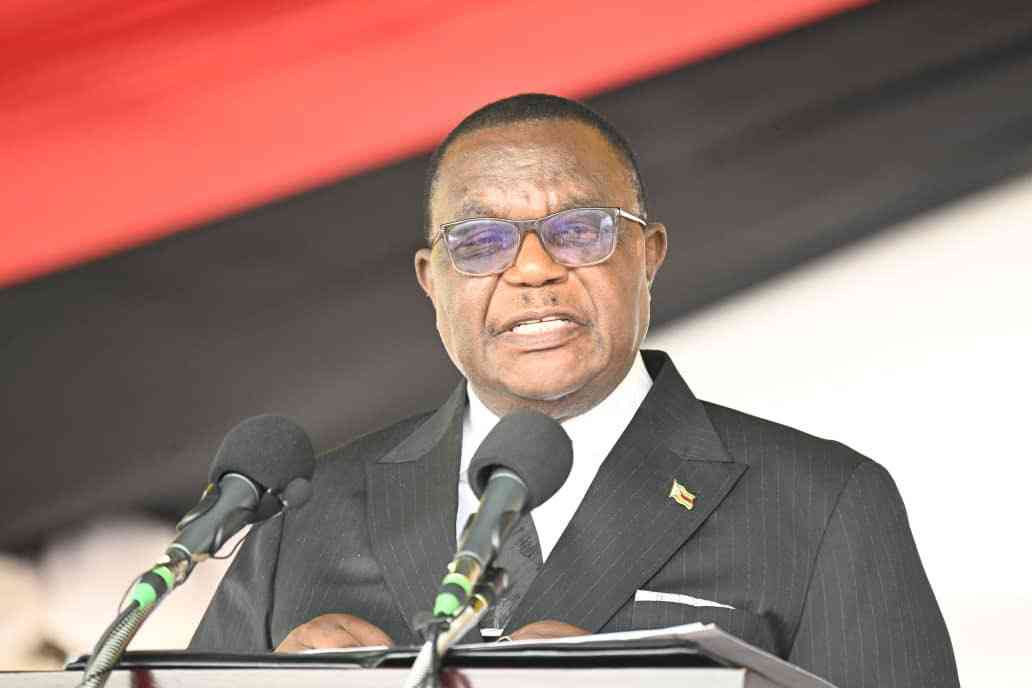
I am one of the fortunate people to have met superstar Leonard Dembo.
I have told this story before but I will repeat it for those who missed it the last time I wrote it now that it’s his 27th anniversary..
I remember during my first days as a lecturer at the University of Zimbabwe, I was active in assisting the Students Representative Council (SRC) through its president Terry Mhungu, by providing entertainment as I was in touch with most of the popular musicians of the time.
At some point, in 1992, with the popularity of his monster hit, Chitekete, I was tasked to invite Leonard Dembo for a function at the University of Zimbabwe’s Students’ Union Cafeteria.
He came with his band, Barura Express and they performed from 9 pm until midnight. Half way through the performance, Leonard decided to take a break to go to the toilet.
About a dozen drunk students (who called themselves UBAs or Ma UBA) followed him to the toilet and started to harass him: “We have paid our money and you decide to leave the stage? Why did you stop? You can sing for us now in this toilet,” they demanded.
Dembo politely replied that he would soon go back on stage once he had finished relieving himself. Besides, he said, “I cannot sing here in the toilet without my band."
The UBA’s would not take it.
- Education 5.0: Blessing or curse for UZ students?
- UZ in fees shocker
- Deliver free education, govt told
- Police break up UZ protests
Keep Reading
They started heckling him and at the same time screaming, “You can sing for us here in the toilet without your band. How dare you take a break when we have paid our money? Sing Chitekete here now. Sing! Sing! Sing! UBA Ahoy!”
This is when I walked into the toilet and discovered what was going on.
One of the students recognised me and told the others to stop.
Dembo was fortunate that I came to his rescue in time as some had started pulling his shirt by the collar while others were trying to pull down his trousers.
I identified a drunk Mr. Zhangazha who was at the forefront, whom I still call “hooligan” up to this day each time we meet. I asked him to stop his friends from harassing Dembo.
He also wanted to remove his hat to see his bald patch which the UBAs found fascinating. I then pulled Dembo to one side and told these UBA’s (Some university girls told me that the acronym UBA means Unable to Buy Anything while the acronym USA means Unable to Sleep Alone) to behave themselves.
This was my address to them; “This gentleman has committed no crime. Why are you harassing him? Like any human being, he also gets tired, and like you, he also has to answer to the call of nature. So let him be. After all he has come to this university to entertain you.” They obliged.
Leonard was soon back on stage. It was around 11 o’clock.
For the rest of the evening he simply sang an extended version of Chitekete. The students were ecstatic.
After the concert, Dembo thanked me for rescuing him.
The next day all the hostels, especially the female hostels, from Complex 4, Swinton Hall to Carr-Saunders had ghetto blasters blurring with Chitekete.
These are the same men and women, now in their forties and fifties who still find pleasure in playing this song today and have turned it into a Zimbabwean classic.
The song Chitekete was created 37 years ago and Zimbabweans who were not even born at that time still find it enjoyable.
This makes one wonder what sort of inspiration went into this man’s head to come up with such a great composition.
The prolific hitmaker, Leonard ‘Musorowenyoka’ Dembo who died on April 9, in 1996, was indeed one of the greatest musicians to have graced the Zimbabwe music scene.
Born Leonard Tazvivinga Dembomavara in 1959 in a poor Chirumanzu family, he attended primary school in Buhera and later went to Chembira Secondary School in Harare after which he decided that his future was in music.
However, he never thought that one day, he would make it big as he eventually did with Chitekete which sold over 100 000 copies in its first three weeks of release.
Classical music, which is highly sophisticated in both its vocal and instrumental forms, is rooted in Western cultural traditions of music styles such as opera, symphony and sonata.
Such music came from composers like Mozart, Haydin, Handel, Beethoven, Bach and Tchaikovsky between 1750 and 1893. It moves from generation to generation and continues to be appreciated by generations to come.
It looks like in Leonard Dembo’s Chitekete, Zimbabwe has now found its own version of classical music.
The late Leonard Dembo’s all-time hit song Chitekete was voted number one on one radio station’s Zimbabwe’s Greatest Songs of all time competing with other great songs such as Thomas Mapfumo’s Madhebhura, Jah Prayzah’s Jerusarema, Albert Nyathi’s Senzenina, Bhundu Boys’ Jit Jive and Simbimbino, Jemedza by James Chimombe, Leonard Zhakata’s Mugove, the late Oliver Mtukudzi’s Neria and Tozeza Baba, the late Simon Chimbetu’s Samatenga and Mwana Wedangwe.
Out of all these beautiful tunes, Chitekete came up tops to grab the number one position, according to this radio station’s survey.
His other albums include Shiri Yakangwara, Kukura Hakutane, Nhamo Moto, Ruva Rashe and Kukura Kwedu. Hits from some of these albums were Venenzia, Dudzai, Sharai, Murombo, Nhamo and of course the now classic Chitekete.
I asked a dozen people (six male and six females) all aged 40 and above if they knew the song Chitekete by Leonard Dembo. They all did, but when I asked them to recite the words in the song only three were able to complete one line of the first verse of one of the greatest songs ever written by a Zimbabwean.
Chitekete appeals to many and they seem to know the meaning behind the lyrics but are unable to say them. It is a very unique song, especially for its time. For starters, the song has no chorus. It just rambles on and on about Honayi Ruva Rechitekete, but the genius behind Dembo made it resonate with the public from that time up until now.
They also seem to know the meaning behind the song.
The song is about a boy who is admiring the girl of his dreams. The boy has fallen in love with a girl who is at a distant place both physically and metaphorically. He is saying, “How can I come and take you given the thorny road that leads to where you are?” The thorny road is metaphorical probably given that the girl is from a rich background whilst the boy is from a poor background from where he says: "Zvandisina shangu" (which means no shoes or I have little in terms of possessions.) Despite these setbacks the boy is determined to win the girl (to be his mother’s daughter- in- law as he puts it - "Ave muroora wa mai") who he describes as Chitekete, a word of love and endearment.
At some point during the early 1990’s some people began to attribute to Simon Chimbetu thinking that he was the creator of the song. At his live concerts at some Zanu PF functions, you would hear some women shouting “Iwe Simon, imba Chitekete”. Chimbetu was tempted to sing it but would only chant the first line: “Honai ruva reChitekete chaamai nababa pari zvino vatadza kurara nekufunga iwe” without the backing of his band and he would stop there, much to the disappointment of the crowd who sincerely thought it was his song.
Leonard Dembo, just like what Bob Marley did with reggae, raised and left the Sungura bar high. He died at the age of 36 but his compositions carried so much depth and profoundness.
He was a genius.
Dembo was simply an unassuming character who managed to mirror society, reflect on people’s daily struggles and inspire them to dream, entertain them in an impeccable way.
So compelling was Chitekete that the Miss World pageant in Namibia had to play it much to everyone’s delight.
Leonard Dembo’s music lives on.
- Feedback: frezindi@gmail.com










